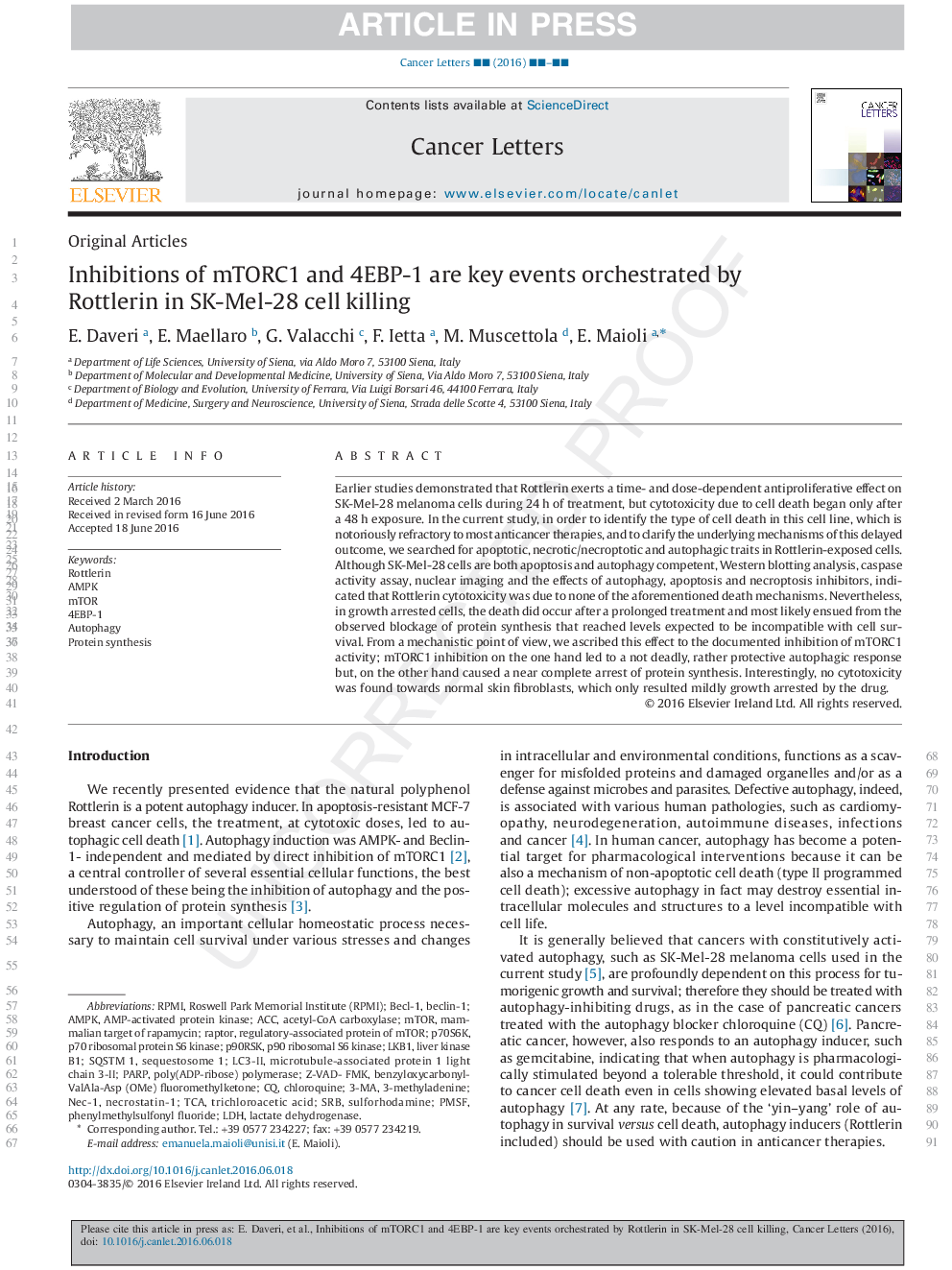| Article ID | Journal | Published Year | Pages | File Type |
|---|---|---|---|---|
| 10901020 | Cancer Letters | 2016 | 8 Pages |
Abstract
Earlier studies demonstrated that Rottlerin exerts a time- and dose-dependent antiproliferative effect on SK-Mel-28 melanoma cells during 24âh of treatment, but cytotoxicity due to cell death began only after a 48âh exposure. In the current study, in order to identify the type of cell death in this cell line, which is notoriously refractory to most anticancer therapies, and to clarify the underlying mechanisms of this delayed outcome, we searched for apoptotic, necrotic/necroptotic and autophagic traits in Rottlerin-exposed cells. Although SK-Mel-28 cells are both apoptosis and autophagy competent, Western blotting analysis, caspase activity assay, nuclear imaging and the effects of autophagy, apoptosis and necroptosis inhibitors, indicated that Rottlerin cytotoxicity was due to none of the aforementioned death mechanisms. Nevertheless, in growth arrested cells, the death did occur after a prolonged treatment and most likely ensued from the observed blockage of protein synthesis that reached levels expected to be incompatible with cell survival. From a mechanistic point of view, we ascribed this effect to the documented inhibition of mTORC1 activity; mTORC1 inhibition on the one hand led to a not deadly, rather protective autophagic response but, on the other hand caused a near complete arrest of protein synthesis. Interestingly, no cytotoxicity was found towards normal skin fibroblasts, which only resulted mildly growth arrested by the drug.
Keywords
LKB1Sulforhodaminep90RSKsequestosome 1necrostatin-1LC3-IIBeclin-1PARP3-MAp70S6KPMSFRPMImTORTCASRBACCAMPK3-methyladenineAMP-activated protein kinaseNec-1p70 ribosomal protein S6 kinasep90 ribosomal S6 kinaseAutophagyacetyl-CoA carboxylasetrichloroacetic acidRottlerinRaptorProtein synthesisphenylmethylsulfonyl fluoridelactate dehydrogenaseLDHmammalian target of rapamycinregulatory-associated protein of mTORPoly(ADP-ribose) polymeraseChloroquineliver kinase B1
Related Topics
Life Sciences
Biochemistry, Genetics and Molecular Biology
Cancer Research
Authors
E. Daveri, E. Maellaro, G. Valacchi, F. Ietta, M. Muscettola, E. Maioli,
